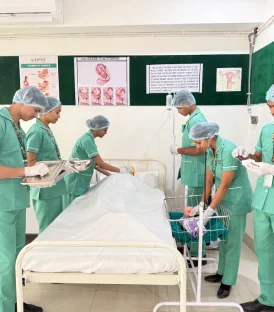May 17, 2023

Effective communication is a vital component of running a successful hotel. Communication
is the key to ensuring that all staff members are on the same page, that guests feel welcome
and valued, and that operations run smoothly. In this article, we will explore the importance
of effective communication in the hotel industry and provide tips on how to improve
communication within your hotel.
First and foremost, effective communication is essential in creating a welcoming and
comfortable environment for guests. From the moment a guest arrives, they should feel
welcomed and valued. This means that hotel staff must communicate effectively to ensure
that guests’ needs are met and any issues are resolved quickly and efficiently. Good
communication skills can also help staff members anticipate guests’ needs and provide a high
level of personalized service.
Effective communication is also critical in ensuring that hotel operations run smoothly. From
front desk staff to housekeeping, each department must be able to communicate effectively
with one another to ensure that guests’ needs are met and that the hotel runs efficiently. For
example, if the front desk staff is not communicating effectively with housekeeping, guests
may experience delays in having their rooms cleaned or receiving requested amenities.
In addition to improving the guest experience and operations, effective communication can
also help to reduce staff turnover. When staff members feel valued and included, they are
more likely to be engaged and committed to their work. Effective communication can help
foster a sense of teamwork and collaboration, which can lead to increased job satisfaction and
reduced turnover rates.
To improve communication within your hotel, consider implementing the following tips:
- Train staff in effective communication skills: Providing training on effective
communication skills can help staff members communicate more effectively with one
another and with guests.
- Encourage feedback: Encouraging feedback from staff members and guests can help
identify areas for improvement and foster an open and transparent communication
culture.
- Use technology: Technology can be a useful tool for improving communication
within a hotel. For example, using a digital communication platform can help staff
members communicate more efficiently and effectively.
- Foster a positive workplace culture: Creating a positive workplace culture that
emphasizes teamwork and collaboration can help improve communication and reduce
staff turnover.
In conclusion, effective communication is essential for running a successful hotel. By
improving communication skills and fostering a positive workplace culture, hotel staff can
create a welcoming and comfortable environment for guests while ensuring that operations
run smoothly.
Blog by: Monika Manjul

















